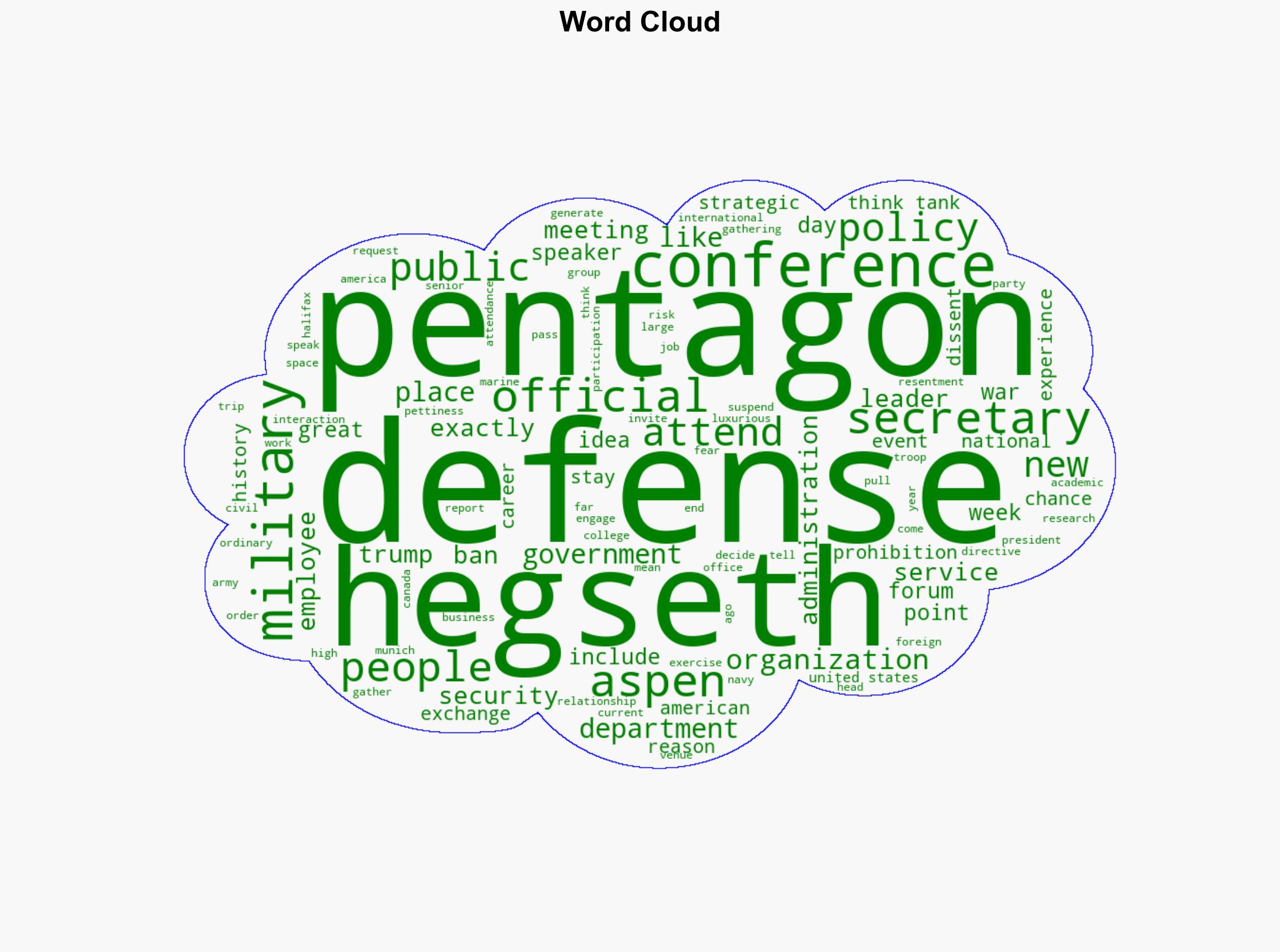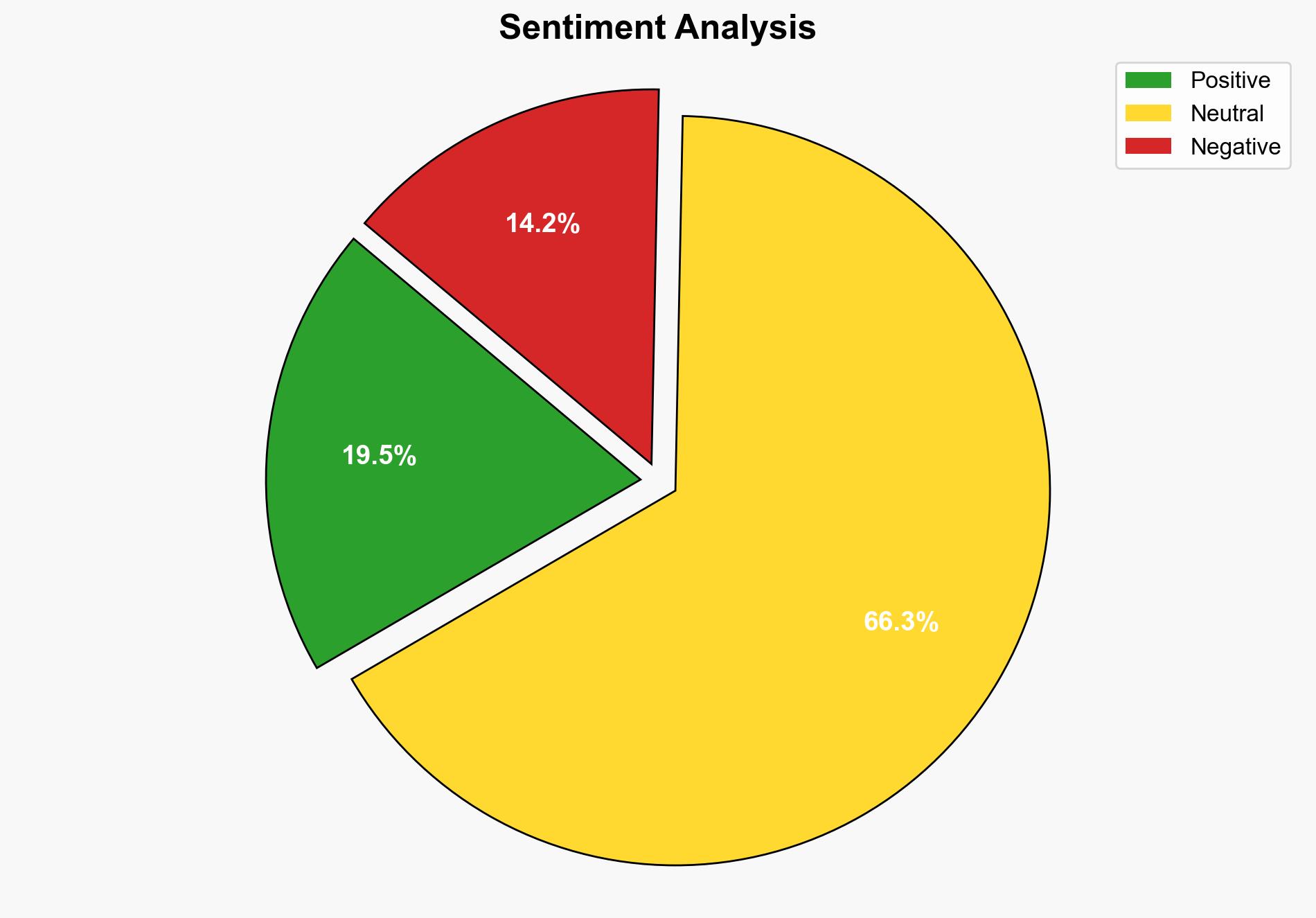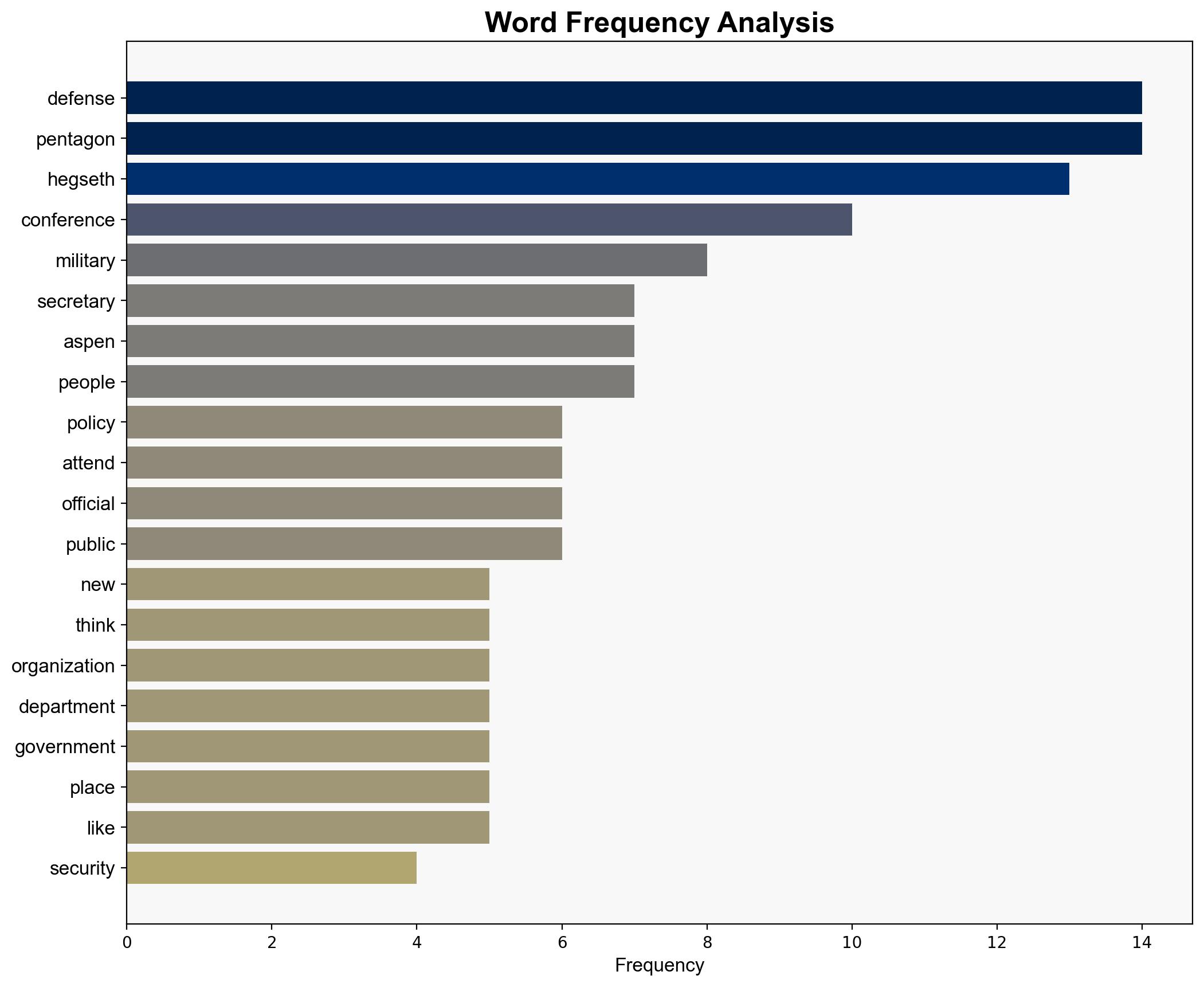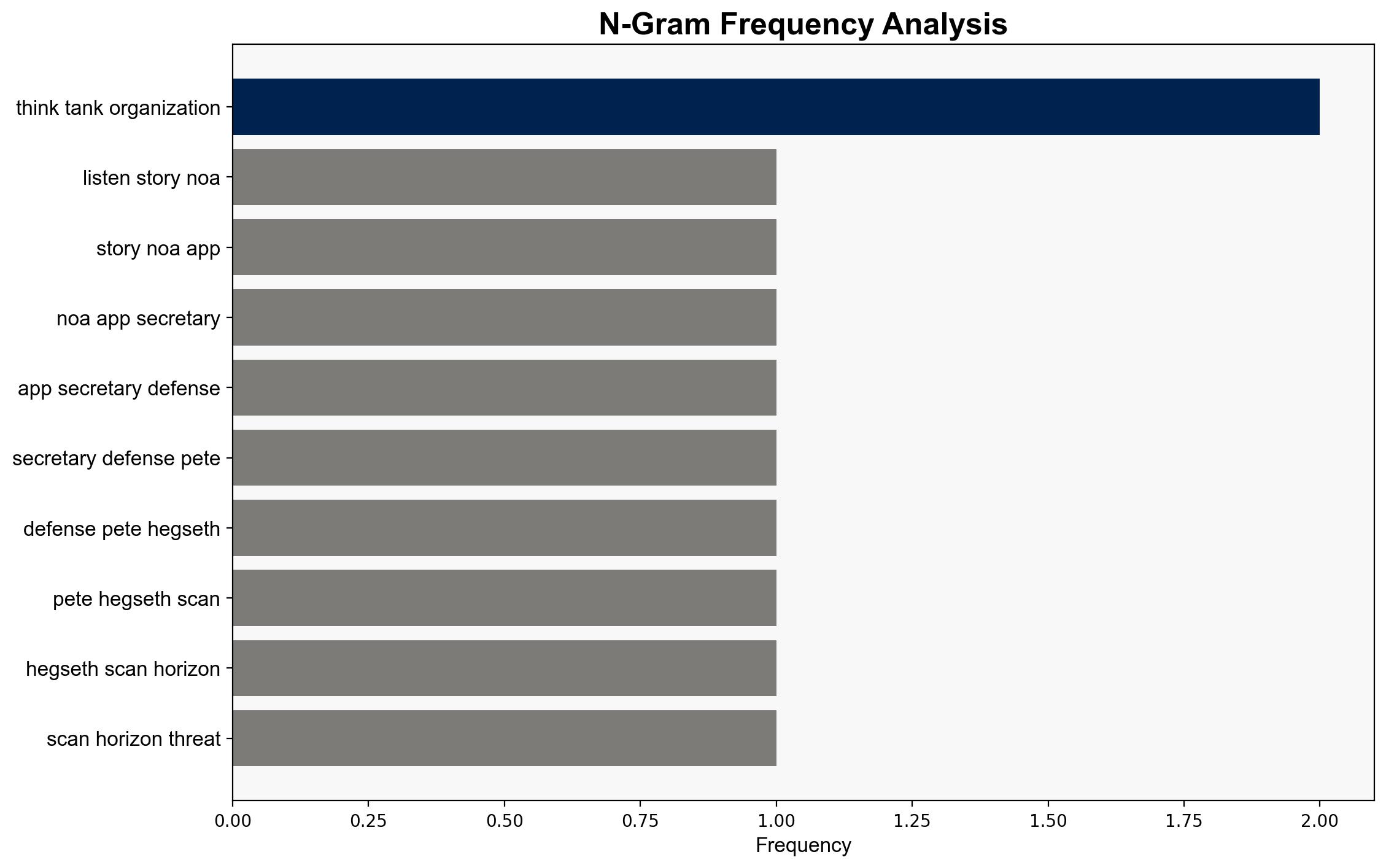The Pentagon Against the Think Tanks – The Atlantic
Published on: 2025-07-29
Intelligence Report: The Pentagon Against the Think Tanks – The Atlantic
1. BLUF (Bottom Line Up Front)
The most supported hypothesis is that the Pentagon’s withdrawal from think tank engagements is primarily driven by a strategic realignment to focus on enhancing military readiness and reducing perceived distractions. Confidence level: Moderate. Recommended action: Monitor the impact of this policy shift on military-civilian relations and assess any changes in defense policy discourse.
2. Competing Hypotheses
1. **Strategic Realignment Hypothesis**: The Pentagon’s decision to withdraw from think tank engagements is a deliberate strategy to refocus on military readiness and operational effectiveness, minimizing distractions and potential leaks.
2. **Internal Insecurity Hypothesis**: The withdrawal is primarily motivated by internal insecurities and fear of intellectual competition, with leadership perceiving think tanks as potential sources of embarrassment or critique.
Using structured analytic techniques such as Analysis of Competing Hypotheses (ACH), the Strategic Realignment Hypothesis is better supported due to the alignment with broader defense department goals of increasing lethality and revitalizing the warrior ethos.
3. Key Assumptions and Red Flags
– **Assumptions**: The Strategic Realignment Hypothesis assumes that the Pentagon’s leadership prioritizes operational focus over intellectual engagement. The Internal Insecurity Hypothesis assumes a lack of confidence among leadership in handling external critique.
– **Red Flags**: The lack of explicit statements from the Pentagon clarifying the rationale for the withdrawal raises questions. The potential bias in media reporting could skew perceptions of the motivations behind the decision.
– **Missing Data**: Specific internal communications or directives that could clarify the Pentagon’s strategic intentions are not available.
4. Implications and Strategic Risks
– **Geopolitical Risks**: Reduced interaction with think tanks may limit the Pentagon’s exposure to diverse strategic perspectives, potentially narrowing its strategic outlook.
– **Psychological Risks**: The perception of insecurity or fear of critique could undermine confidence in leadership both internally and externally.
– **Cascading Threats**: If the policy leads to a broader disengagement from civilian institutions, it could weaken collaborative defense efforts and innovation.
5. Recommendations and Outlook
- Conduct a comprehensive review of the impacts of this policy on defense strategy formulation and civilian-military relations.
- Engage in selective re-engagement with think tanks to ensure a balanced approach to strategic development.
- Scenario Projections:
- Best Case: The policy enhances military focus without significant loss of intellectual input.
- Worst Case: The policy leads to strategic insularity and diminished innovation.
- Most Likely: A mixed outcome with some loss of external insights but increased internal focus.
6. Key Individuals and Entities
– Pete Hegseth
– Sean Parnell
– Robert Gates
– Mark Esper
– Viktor Orbán
– John Phelan
– Samuel Paparo
7. Thematic Tags
national security threats, cybersecurity, counter-terrorism, regional focus





